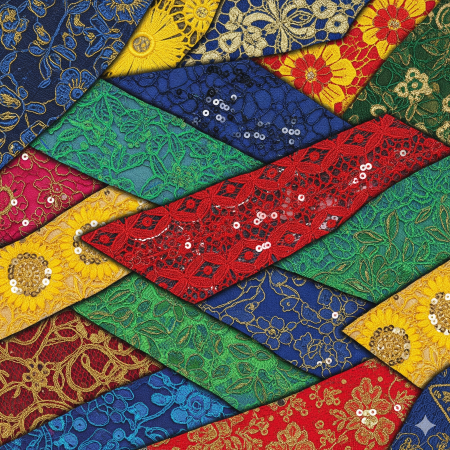Where are Queens of the Mic: Weird MC, Sasha, Mo'Cheddah, Bouqui

Do you remember when “long break” was a rap battle and your battered exercise book doubled as a lyric vault. In schoolyards across Nigeria, being the best dancer or rapper wasn’t just cool — it was status. And the names you’d hear in those cyphers? Bouqui? Sasha P? Mo’Cheddah? Weird MC? Where are they now?
BOUQUI: The Revolutionary
Image: Bouqui to the right of the image in her PhD graduation attire. Credit: This Day Live
Bouqui, born Bukola Folayan, delivered sermons with rhythm. Her 2007 self-titled debut album BOUQUI wasn’t just music; it was a manifesto. Tracks like “Molejo” and “Get It Started” hit with a palpable forcr, setting a new bar for female rappers across the continent. Her reach wasn’t confined to Lagos or Abuja. She was performing across the U.S., Europe, and Canada, including a massive 15,000-capacity crowd at Obafemi Awolowo University.
Awards followed her hustle. Best Female Act at the AMEN Awards. Multiple Headies nominations. International recognition at the Women in Entertainment Awards UK.
By the mid-2010s, Bouqui’s music was beginning to echo with gospel influences. And then, in 2019, came the unexpected twist: she was ordained as a pastor. The bars gave way to Bible verses. But her message? Just as powerful. She completed a PhD in Marketing, Advertising, and Faith-based Initiative in 2022. That same year, she released her deeply personal memoir My Naked Parts— a raw, reflective look into her journey through fame, faith, and finding purpose.
Weird MC
If you grew up in Nigeria in the early 2000s, chances are you shouted “Ijoya!” more than once — maybe on a sweaty dance floor, at a school talent show, or from a rickety radio on a Saturday morning. That explosive anthem, with its blend of Yoruba percussion and futuristic flair, came from one unforgettable artist: Weird MC.
Born Shola Idowu, Weird MC was ahead of her time — a fierce blend of British and Nigerian influences, tomboy charm, mystical flair, and lyrical fire. At a time when female voices were still finding footing in Nigerian hip-hop, she didn’t wait for a seat at the table — she built her own. With tracks like “Allen Avenue” and “Ijoya,”Weird MC shifted the sound of an era.
Weird MC, Where is She?
Image: Weird MC. Credit: Hip Hop Africa
In 2021, Weird MC sat down for an interview with the premium times, and laid her heart bare. She revealed that after losing her close friendNomoreloss, in 2017 she stepped away from the spotlight and quietly moved back to the UK. That loss opened the door to something deeper: a journey of healing, faith, and rediscovery. She spent those years not just resting, but evolving — learning new professional skills, reconnecting with God, and redefining her purpose.
Now, she's preparing to re-enter the music world, not just with beats, but with intention. The goal? Music that uplifts, transforms, and reflects her spiritual walk.
During those years away, she also learned new skills, including working as a Scrum Master.
Her daily prayer, she says, is that people don’t just hear her music but see Christ in her.
Sasha P: The First Lady of Nigerian Hip-Hop
Image Above: Sasha P. Credit: Lagos Jump Radio
Sasha P didn’t need an introduction — she was the introduction. The minute she stepped on the scene under Trybe Records and later Storm Records, she made it clear that women weren’t just part of the genre, they could lead it. Her 2008 album First Lady, powered by the unforgettable “Adara,” became a milestone in Nigerian music.
By 2010, she had made history, winning Best Female Artist at the MTV Africa Music Awards (MAMA) — a continental crown that cemented her influence. Sasha P didn’t just open doors; she removed them. Suddenly, the next generation of girls in hip-hop saw themselves in her — loud, proud, and powerful.
Around 2013, she stepped away from the mic — not in retreat, but in expansion. She dove into fashion, launching her own label, and carved out space in humanitarian work. Although she's no longer under the spotlight, one thing is certain, her serving as an inspiration to others never ended.
Mo’Cheddah
Image Above: Mo Cheddah with her baby. Credit: Punch Newspaper
She entered the game like a comet. Barely 20, Mo’Cheddah’s debut albumFranchise Celebrity (2010) had the kind of momentum artists twice her age dreamed of. “If You Want Me” was more than a hit — it was an anthem. She blurred the line between rapper and pop star, bringing a genre-bending sound that felt futuristic.
Her rise was rapid. By 2012, she had founded her own label, Cheddah Music. She wasn’t just creating music — she was creating a brand, making her one of the first young female artists in Nigeria to take full control of her career.
Mo’Cheddah’s Shift
After a flurry of hits and early success, Mo’Cheddah slowed her music career around 2015. Some wondered if she’d left for good. But she hadn’t stepped back — she’d stepped sideways. Into fashion. Into entrepreneurship. Into a version of stardom that didn’t depend on a beat. Through social media, she kept her fans close. Mo cheddah is now a proud mother and has openly discussed how motherhood healed her from depression and suicidal thoughts.
Their Legacy
After years of dominating the charts and the stage, all four artists began to shift gears. Their voices didn’t disappear — they simply evolved.
Each of these women walked different paths, but all three reshaped what it meant to be a female rapper in Nigeria. Boqqui brought depth, intellect, and a fierce sense of purpose. Sasha P showed that female rappers could win, dominate, and inspire — all while staying authentically themselves. Mo’Cheddah blended youth, talent, and entrepreneurship long before "influencer culture" became a thing.
You may also like...
When Sacred Calendars Align: What a Rare Religious Overlap Can Teach Us

As Lent, Ramadan, and the Lunar calendar converge in February 2026, this short piece explores religious tolerance, commu...
Arsenal Under Fire: Arteta Defiantly Rejects 'Bottlers' Label Amid Title Race Nerves!

Mikel Arteta vehemently denies accusations of Arsenal being "bottlers" following a stumble against Wolves, which handed ...
Sensational Transfer Buzz: Casemiro Linked with Messi or Ronaldo Reunion Post-Man Utd Exit!

The latest transfer window sees major shifts as Manchester United's Casemiro draws interest from Inter Miami and Al Nass...
WBD Deal Heats Up: Netflix Co-CEO Fights for Takeover Amid DOJ Approval Claims!

Netflix co-CEO Ted Sarandos is vigorously advocating for the company's $83 billion acquisition of Warner Bros. Discovery...
KPop Demon Hunters' Stars and Songwriters Celebrate Lunar New Year Success!

Brooks Brothers and Gold House celebrated Lunar New Year with a celebrity-filled dinner in Beverly Hills, featuring rema...
Life-Saving Breakthrough: New US-Backed HIV Injection to Reach Thousands in Zimbabwe

The United States is backing a new twice-yearly HIV prevention injection, lenacapavir (LEN), for 271,000 people in Zimba...
OpenAI's Moral Crossroads: Nearly Tipped Off Police About School Shooter Threat Months Ago
ChatGPT-maker OpenAI disclosed it had identified Jesse Van Rootselaar's account for violent activities last year, prior ...
MTN Nigeria's Market Soars: Stock Hits Record High Post $6.2B Deal

MTN Nigeria's shares surged to a record high following MTN Group's $6.2 billion acquisition of IHS Towers. This strategi...






